 Petzlover
Petzlover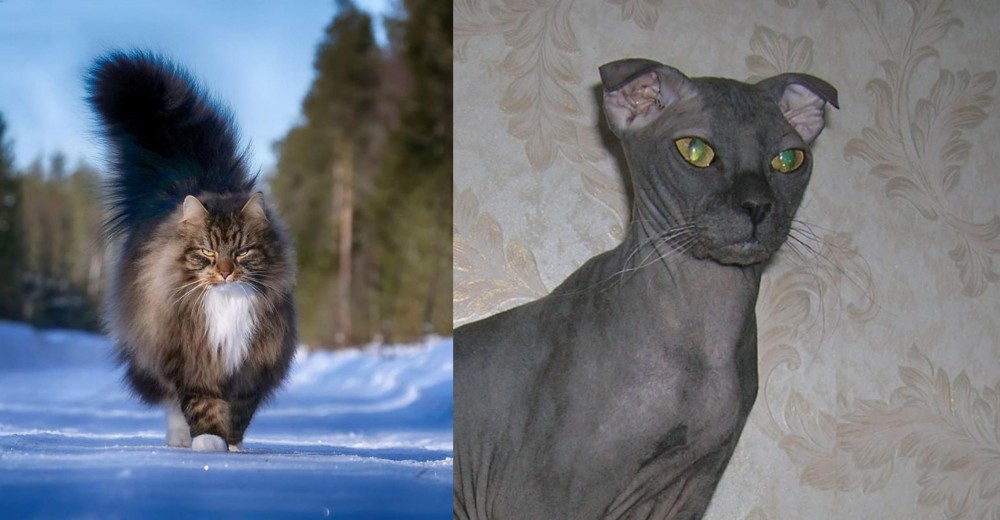 Norwegian Forest Cat is originated from Norway but Ukrainian Levkoy is originated from Ukraine. Both Norwegian Forest Cat and Ukrainian Levkoy are having almost same weight. Both Norwegian Forest Cat and Ukrainian Levkoy has almost same life span. Both Norwegian Forest Cat and Ukrainian Levkoy has same litter size. Norwegian Forest Cat requires Moderate Maintenance. But Ukrainian Levkoy requires Low Maintenance
Norwegian Forest Cat is originated from Norway but Ukrainian Levkoy is originated from Ukraine. Both Norwegian Forest Cat and Ukrainian Levkoy are having almost same weight. Both Norwegian Forest Cat and Ukrainian Levkoy has almost same life span. Both Norwegian Forest Cat and Ukrainian Levkoy has same litter size. Norwegian Forest Cat requires Moderate Maintenance. But Ukrainian Levkoy requires Low Maintenance
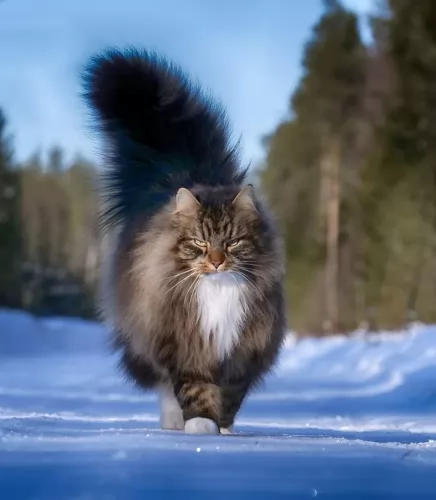 The beautiful Norwegian Forest cat has a thick fur to survive the snow and icy weather in Norway. It is the official cat of Norway.
The beautiful Norwegian Forest cat has a thick fur to survive the snow and icy weather in Norway. It is the official cat of Norway.
It originated in Northern Europe. It is believed that the cat was brought to Norway from Great Britain way back in the time of the Vikings. It is also believed that it reproduced with farm cats and has become the modern-day Norwegian Forest breed.
They were discovered in the early twentieth century by cat enthusiasts and in 1938 an organization was established devoted to this breed.
Also, a club was started for the cat in Oslo so as to preserve the breed. The 2nd World War saw the cat all but disappear but a breeding program was started. It was registered in Europe by the 1970s, and in 1994 by the American Cat Fanciers Association and others.
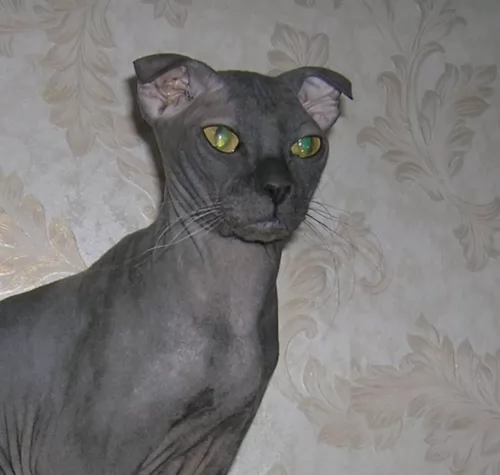 The Ukrainian Levkoy is a distinctive looking cat with its folded ears. This is a new breed of cat, only being developed recently early in the 2000s.
The Ukrainian Levkoy is a distinctive looking cat with its folded ears. This is a new breed of cat, only being developed recently early in the 2000s.
The cat was first developed by Elena Biriukova in Ukraine, by crossing the hairless Donskoy cat with the Scottish Fold. Also, Oriental and domestic cats were also brought into the mix.
This particular cat breed was recognized in 2005 in Ukraine and recognized in Russia in 2010. The cat isn’t recognized by any of the major international cat organizations.
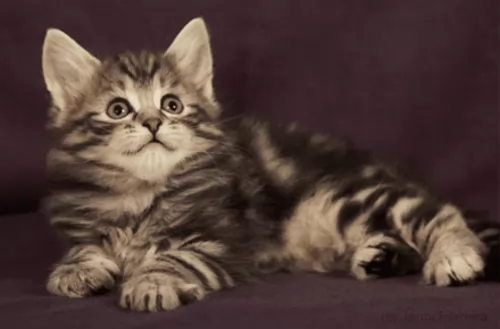 This domestic cat is a natural breed with a thick coat of long water-resistant fur and a woolly undercoat. The coat can be in many colors and patterns.
This domestic cat is a natural breed with a thick coat of long water-resistant fur and a woolly undercoat. The coat can be in many colors and patterns.
This is a big, strong, heavy boned cat with a bushy tail and long legs. It’s larger than your regular cat and can weigh anything between 3 and 9kg. The eyes are almond-shaped and can be any color while the large ears are high set.
In spite of this being a large cat, they are energetic and yet they don’t like being around boisterous, energetic pets. They are friendly, calm, gentle, and intelligent and enjoy being part of a human family.
They tend to be a bit reserved around strangers. It’s not a demanding cat and can entertain himself with his toys.
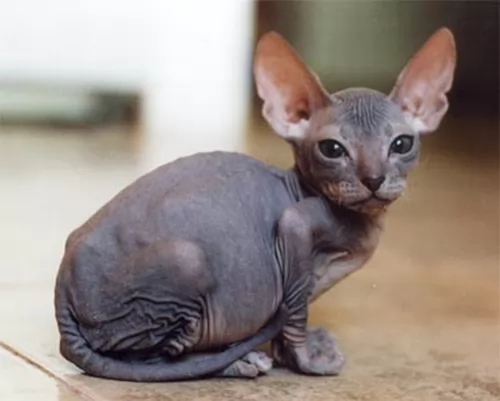 With his distinctive appearance, the medium-sized, muscular but slender Ukrainian Levkoy cat weighs in the region of 3 to 6kg.
With his distinctive appearance, the medium-sized, muscular but slender Ukrainian Levkoy cat weighs in the region of 3 to 6kg.
He has these inward-folding ears with very little hair. These are two distinctive features of this cat. The skin is soft and wrinkled, the eyes large and almond-shaped while the ears are also large and set wide apart and high on the wedge-shaped head.
He has long, slender legs and a narrow tail. The litter size of these cats is generally 3 to 6.
Friendly and playful, the Ukranian Levkoy is also intelligent and enjoys having human companionship.
He is social and will make friends of other pets in the house. He is also compatible with children.
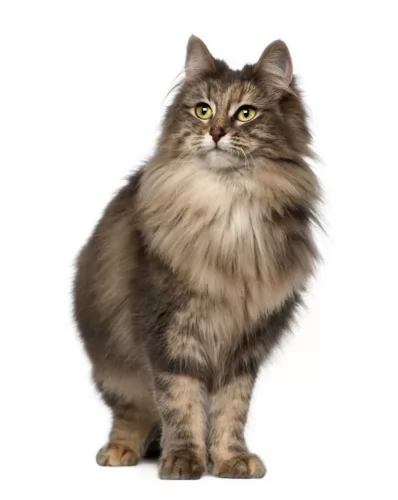 Remember that your large Norwegian Forest cat likes to scratch so you want to provide him with a scratching post. He is so companionable, you want to reward him by ensuring you make his life as easy as possible.
Remember that your large Norwegian Forest cat likes to scratch so you want to provide him with a scratching post. He is so companionable, you want to reward him by ensuring you make his life as easy as possible.
Known as a gentle giant, the beautiful and undemanding Norwegian Forest cat will appreciate a calm household where he can quietly enjoy the companionship of the humans he loves.
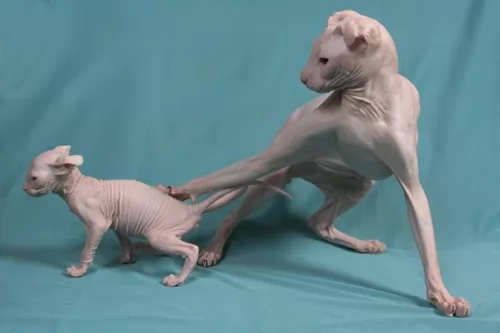 The Ukrainian Levkoy, even though he is fairly docile, is a very sociable cat that thrives on human interaction.
He is able to get on well with children as well as with other pets. He is also quite a vocal cat and will let you know when he is hungry or wants to play. Some call them ugly and others call them sweet - whatever you make of the Ukranian Levkoy, he needs your love and care to be the best pet he can be.
The Ukrainian Levkoy, even though he is fairly docile, is a very sociable cat that thrives on human interaction.
He is able to get on well with children as well as with other pets. He is also quite a vocal cat and will let you know when he is hungry or wants to play. Some call them ugly and others call them sweet - whatever you make of the Ukranian Levkoy, he needs your love and care to be the best pet he can be.
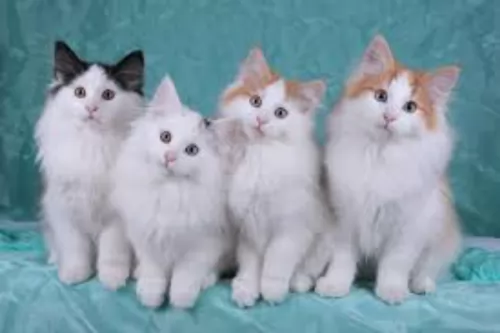 The lifespan of this big, longhaired cat is usually 14 to 16 years, but you need to check out kidney and heart disease with this particular breed as well as patellar luxation.
The lifespan of this big, longhaired cat is usually 14 to 16 years, but you need to check out kidney and heart disease with this particular breed as well as patellar luxation.
You don’t want your cat having problems with the knee cap as this takes away from his ability to leap, pounce and crouch. It’s when the patella or kneecap is out of place. There may not necessarily be pain for your pet and in fact, your cat may not show any signs of abnormality till the condition has become quite advanced.
Your cat can actually become lame. You want to avoid this with the Norwegian as it's a particularly good climber.
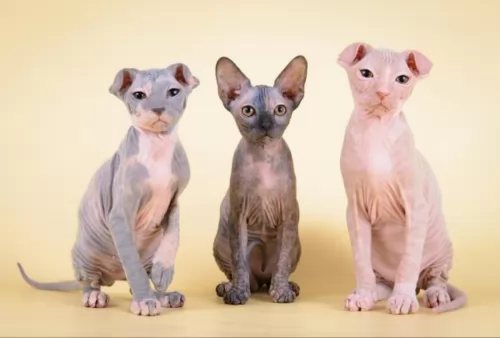 These cats are generally considered to be healthy cats. Having said that, they can be predisposed to the same conditions that the Donskoy and Scottish Fold breeds face.
These cats are generally considered to be healthy cats. Having said that, they can be predisposed to the same conditions that the Donskoy and Scottish Fold breeds face.
It is always beneficial to know and recognize some of the symptoms of a sick cat - lethargy, vomiting, diarrhea, heavy breathing and lack of appetite. Then it's time to schedule a visit to your local vet.
While there aren't any breed-specific health problems associated with the Ukrainian Levkoy, it is imperative to have him vaccinated against the deadly cat diseases that there are.
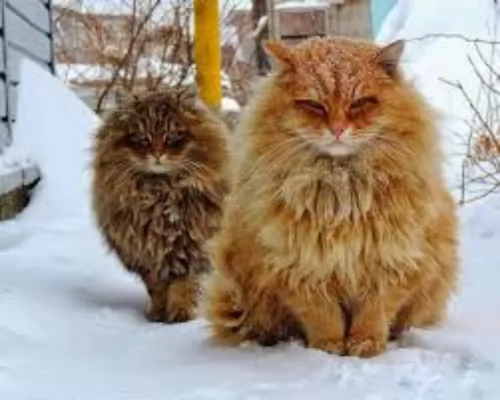 The Norwegian has a long coat so you will need to brush it at least twice a week to keep it nice and shiny and free from tangles.
The Norwegian has a long coat so you will need to brush it at least twice a week to keep it nice and shiny and free from tangles.
Trim your Norwegian forest cat’s claws. You will need a special nail clipper, but if you're nervous to cut the nails yourself, your vet or pet groomers can do it for you.
Cats battle quite a bit with periodontal disease and an excellent diet can help to prevent this. Cats hate you sticking a toothbrush into their mouths – they can become terrified - and it would b kinder to simply have your cat’s teeth checked out at the vet when you suspect that something might be wrong. At the same time, you can ask to have the inside of your cat’s ears checked for dirt and infection.
Keep your cat’s litter box spotlessly clean. These cats dislike a dirty litter box intensely. Remove all feces every single day – more often even if possible.
One good way to select the best food for your cat is to read the ingredients. The first two ingredients listed on the package should always be meat. Select a high-quality cat food. Keeping Norwegian Forest cats in good health requires high-quality cat food to meet all of your Norwegian forest cat’s nutritional needs.
You can feed your Norwegian Forest cat two meals per day. Always check with your veterinarian for a recommendation on how much and what to feed your cat.
Provide a constant supply of fresh, clean water for your Norwegian Forest cat.The bowl should be in an easy place for your cat to reach and in the shade.
Provide your Norwegian with a soft bed in a quiet, restful place.
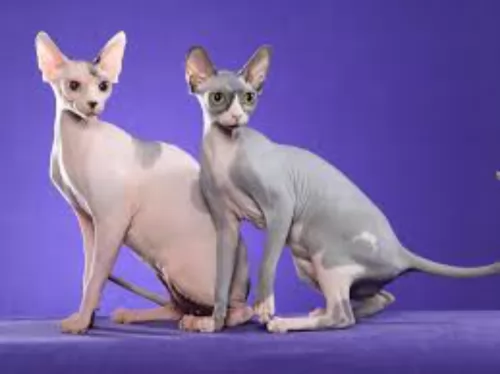 As with all cats, it's important to keep up your Ukrainian Levkoy's regular veterinary checkups. This means you can get to any health concerns early so that your vet can come up with a treatment plan for your pet.
As with all cats, it's important to keep up your Ukrainian Levkoy's regular veterinary checkups. This means you can get to any health concerns early so that your vet can come up with a treatment plan for your pet.
Some cat lovers make a point of scheduling yearly wellness visits with their vet, and this can be a good thing. Cats are natural scratchers so make sure you invest in a scratching post for him.
The inside of the Ukrainian Levkoy's ears should be examined regularly for signs of dirt and wax build-up. It can lead to infection. Speak to your vet about your cat's ears if yourself.
The Ukrainian Levkoy is an active cat and if he is an indoor cat, he will definitely need a climbing tree or some kind of cat perch to leap up onto.
The Ukrainian Levkoy is a hairless cat, so you won't brushing your cat's hair but he will need to have a bath. The skin can become oily and attract dirt. Diet is absolutely important. You'll need to make sure you're feeding your cat a high protein diet as every cat is a carnivore. A cat like this needs to stay in shape to avoid cat diseases related to being overweight.
Most Ukrainian Levkoys need to be kept warm, so you might well have to invest in a jacket or jersey to keep him warm on a cold day.